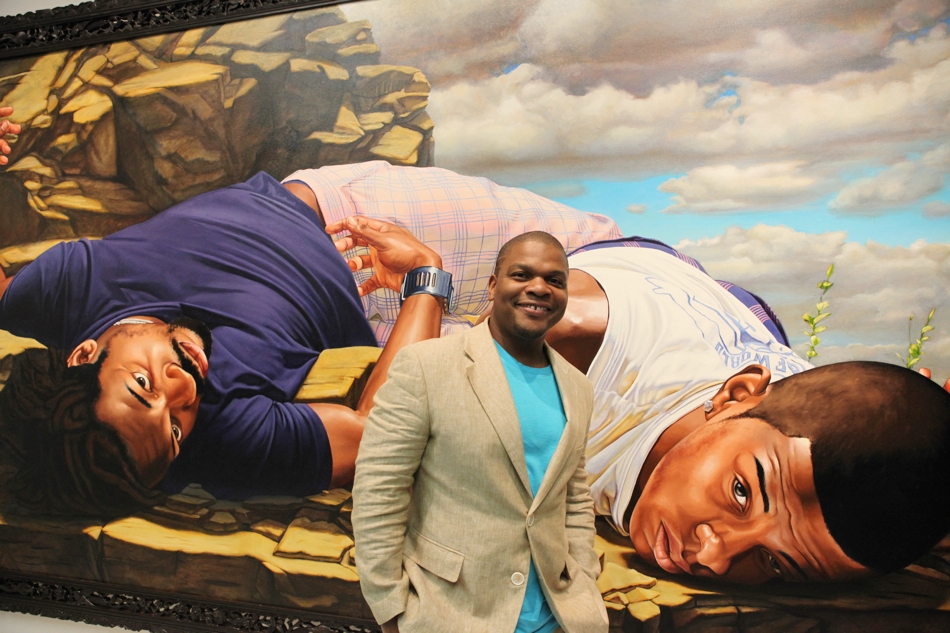Life After: Kehinde Wiley
Acclaimed painter Kehinde Wiley was first introduced to his craft when his mother enrolled him in art school as a child while living in South Central Los Angeles. He used to visit museums and read art history books with paintings from the Renaissance age of chivalrous white men looking poignantly at their viewers. Wiley realized early on that these larger than life portraits were more about representing the levels of access, power and racial identity in society. Wiley has been on a journey to explore these issues ever since. He recently came to town to deliver a 10-year retrospective on his work and discuss the evolution of identity politics in art.
Wiley started his career taking pictures of black men in the streets of Harlem. He mainly focused on the power politics of hair and black masculinity. He would invite the models up to his studio, where they would also view the portraits in his art books, asking “who are all these old white dudes?” Like Wiley, most of the models were from areas that didn’t have access to this kind of art, which again explains the power dynamics in society.
Wiley took his craft to another level with the “World Stage” series, his best known work of fusing traditional art with the contemporary street life of men of color around the world. The series began in China, where he was invited to work in a studio in Beijing. Wiley had his African-American models assume poses from Chinese communist propaganda posters. He says the models and the original people in the posters seemed to share the same characteristics of false hope through their smiles.
“The idea is more than a painting on a wall; this painting is a social wall,” Wiley said. “I wanted to capture that social history.”
Wiley then took his World Stage, well, around the world. From Tunisia to Senegal to India to Brazil, Wiley has captured the contemporary black male experience like never done before. He recalled his time in Israel setting up shoots in the back of Tel Aviv night clubs and asking for drunken models. Many of the Israeli portraits are of Ethiopians and native-born Jews and Arab Israelis. Wiley says the experience opened his eyes up in many ways about the Arab-Israeli conflict. One frame of a painting of an Ethiopian poser says “Can We All Just Get Along” in Hebrew, referring to the Rodney King beating incident.
In Rio de Janeiro, the model interaction was much more challenging, as he had to travel through the favelas with a camera crew and security guards with AK-47s. He did one shoot at a woman’s home when word got out that an American was paying a lot of money for models, and a queue of people suddenly showed up at the house. In other countries he has visited, Wiley found many people to be reluctant or even hostile towards a camera crew coming into their area.
“Often times it’s hard to get models, but sometimes there are people who want to be discovered,” Wiley said. “There are people who are like ‘of course you found me.’”
Nowadays, Wiley doesn’t have a hard time getting models. He has been commissioned in recent years to produce paintings for the World Cup and Michael Jackson. Usually when he hosts opening receptions for his work, Wiley invites his models back to view the final products. Many of them love the work; in fact, some of the models use their portraits on social media profiles.
Wiley’s work has finally come full circle.
“I am always wondering if there is a social good in this work,” he said. “I meet young artists around the world who now feel it’s possible to be a part of this world.”


